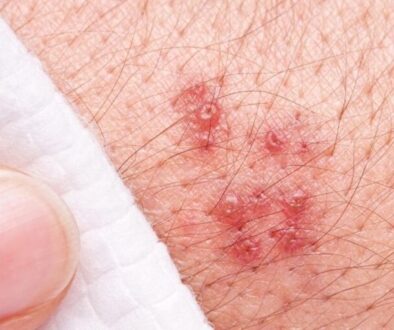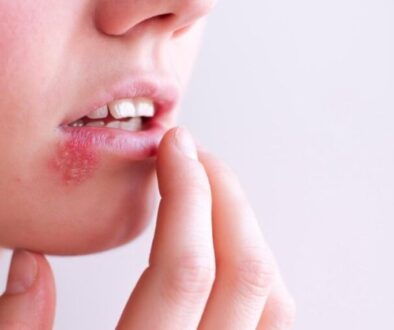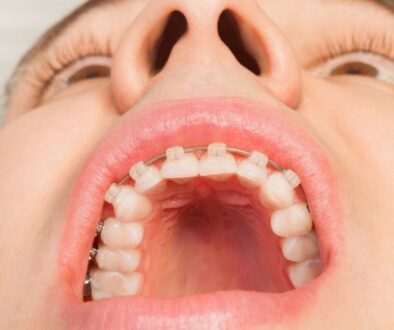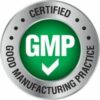Can Stress Trigger Cold Sores?

Published February 11, 2021
Cold sores are common viral infections and one of the telltale symptoms of the herpes simplex virus. The large majority of cold sores are caused by the herpes simplex virus-1 (HSV-1), one of the most widespread sexually transmitted infections globally, affecting two out of three people under 50. One of the things people are curious about is whether or not stress can trigger cold sores. In this article, we’ll be talking about that pressing issue and how to treat and manage cold sores.
What are cold sores?
Also commonly referred to as fever blisters, cold sores are a common viral infection that appears as fluid-filled lesions, typically around one’s lips. These red blisters can be itchy and painful, sticking around for a few weeks at a time.
It was mentioned that the herpes simplex virus-1 often brings about cold sores, but they may also be caused by the herpes simplex virus-2, though this is less likely. HSV-1 is commonly spread through close oral contacts, such as kissing and sharing personal effects like lipsticks and face towels. Cold sores will typically appear on the same spot every time because the virus takes root in the nerves under that portion. The virus will “sleep” before it “wakes up” at a later time because of certain triggers.
While the underlying cause of cold sores is the HSV-1, it is often environmental and psychological factors that trigger them. The fascinating thing about this is that triggers will often vary from person to person, but one well-known trigger is stress.

Symptoms
The most obvious sign that you have cold sores is their appearance, of course. But cold sores will be exhibiting their symptoms even before they appear, the most obvious of which is the tingling, itching, and tenderness on the spot they will appear. This is shortly followed by their actual appearance before they burst and crust over. This entire process will take a few weeks, but you should be relieved to know that cold sores often disappear on their own without needing medical intervention.
It may vary by case, but the following symptoms typically accompany cold sores:
- Fever
- Painful gums
- Sore throat
- Headaches
- Muscle aches
- Swollen lymph nodes
So, can stress cause cold sores?
The consensus is yes; stress can lead to the reactivation of cold sores. It’s long been proven that the various systems in our body, the nervous, endocrine, and immune, are constantly interacting with one another throughout our lives. So, it comes without surprise that stressful events suppress several immune system response components, impacting our biological health.
One popular study examined the effects of social stress on the reactivation of latent herpes simplex virus-1. In this study, mice were inoculated with the herpes simplex virus-1 and subjected to stress to see how they would respond. The results of the study supported the initial hypothesis that both psychological and physical stressors affect the pathophysiology of diseases. Furthermore, social stress can modulate the reactivation or replication of latent herpesviruses.
Stress management
So, we know that stress can trigger cold sores, what now? Nobody likes cold sores. They’re annoying, embarrassing, and downright painful. The best way we treat cold sores is by managing our lifestyle in such a way that prevents them from showing up in the first place. Here are some practices and activities to help you relieve stress and relax:
- Breathing techniques
- Exercise
- Meditation
- Yoga
- Spending time outdoors or in nature, away from the fast-paced city life
- Eating a healthy and balanced diet
- Sleep better
Treatment
If prevention is no longer an option, prescription antiviral medication effectively speeds up the healing process. Here are some well-known examples of these:
- Acyclovir (Zovirax)
- Valacyclovir (Valtrex)
- Famciclovir
- Penciclovir (Denavir)
Suffering From Herpes Type 2 Outbreaks?
Herpezine is a specially formulated all-natural mixture of ingredients proven to help relieve and prevent HSV2 outbreaks when used as directed. This safe, over-the-counter Herpes treatment contains both traditional homeopathic and scientifically proven anti-viral ingredients such as L-Lysine HCI and Bee Propolis. Learn more about Herpezine on our website and visit our pricing page to purchase your first bottle.

About The Author
Terrence Tan Ting is an industrial engineer by profession but a full time writer by passion. He loves to write about a wide range of topics from many different industries thanks to his undying curiosity.






